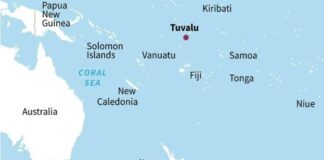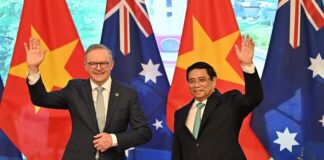One hundred and fifty thousand people attended the Hong Kong candlelight vigil in Victoria Park to commemorate those killed in Tiananmen Square on June 4 1989. They came to pay tribute to the bravery of those who stared down the soldiers and tanks. They came to keep alive the vision of democracy that surged across China for a few glorious weeks in 1989.
Some groups at the vigil were singing the Internationale, a song that rang out in Tiananmen Square 20 years ago. Everyone sang protest songs like Freedom Flowers throughout the night. “We have a dream. It won’t die. Remember.” The most stirring moment was people stood and raised their candles in the air while a traditional Chinese string instrument, the erhu, was played.
We heard a recorded message from Ding Zilin, leader of the Tiananmen mothers group, who demanded justice for the dead.
People jeered when an image of Donald Tsang, Kong Kong Chief Executive officer, was displayed on the huge screens. Days before the anniversary, the Beijing appointee, called for an “objective assessment” of June 4. One man carried a placard that read “Donald Tsang your conscience has been eaten by dogs.”
Many of those at the vigil had not even been born in when students filled the historic square but felt that the tradition of rallying each year must continue. There is nothing in the Hong Kong history textbooks about the massacre so many students feel that the vigil gives them the chance to learn the truth.
Also hidden is the proud history of solidarity in Hong Kong for democracy activists trying to escape from the mainland. Shortly after the crackdown supporters in Hong Kong set up Operation Yellow Bird. Speedboats would travel up the Pearl River to meet political refugees. They were then able to seek asylum in another country.
By Tim Erickson
(Hong Kong)








